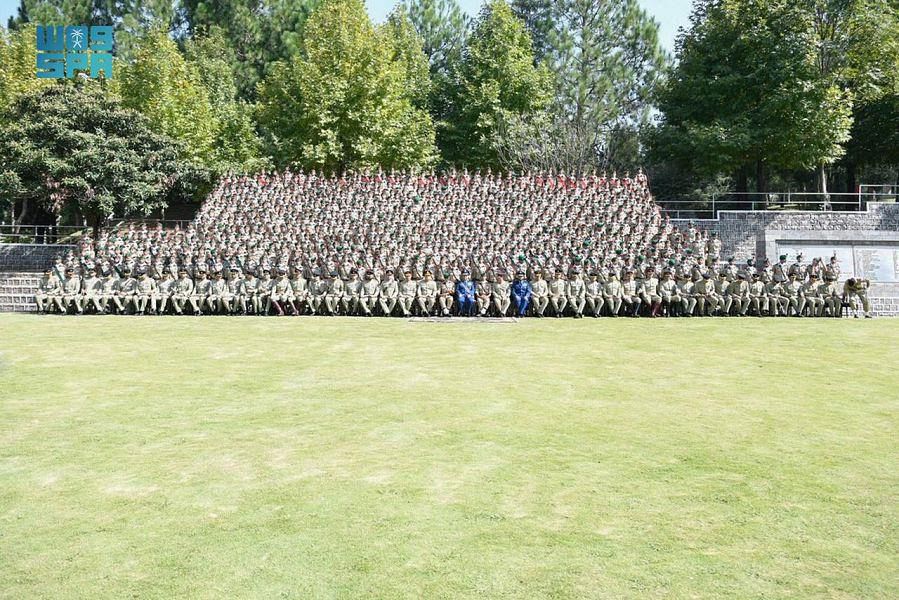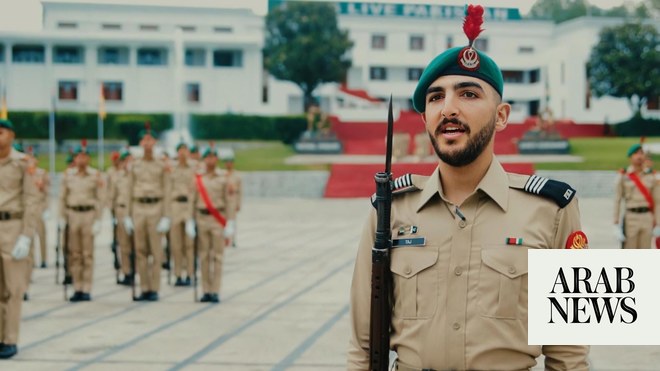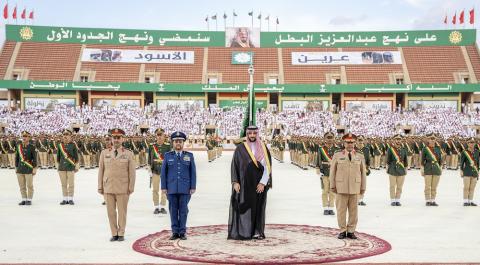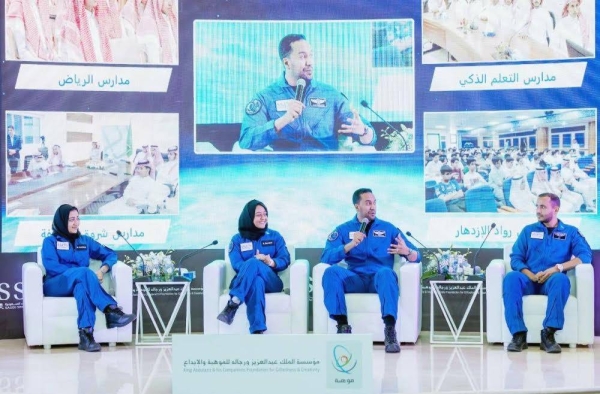
Muslims make up a fraction of the Philippines’ population, which is predominantly Catholic, and just 20 of the 975 cadets at PMA are Muslim
MANILA: “Many people think that the Philippine Military Academy (PMA) is not a place for us Muslims,” Cadet Second Class Alrajan Aripin told Arab News. “They said I would not be able to fulfill my obligations as a Muslim if I enroll. But I found really the opposite upon entering here.”
Muslims make up a fraction of the Philippines’ population, which is predominantly Catholic, and just 20 of the 975 cadets at PMA are Muslim.
But the academy’s Muslim cohort is proud to serve the country and their minority status has been no barrier to success. Aripin, a native from Tawi-Tawi province, said that the academy had already produced many Muslim officers and that the insitution’s schedules for Muslim events were very well attended and observed.
He did not have clear plans for his future during his final year at high school. “Then the PMA conducted an information caravan at our school and it kind of drew my attention.”
He discussed the idea with his parents and relatives, with some worrying that he would not be able to perform his religious duties. But the concerns were unfounded.
Cadet Third Class Nerfa Minong, from Zamboanga City, said one of her relatives had graduated from PMA so there was no family opposition when she decided to join the military school.
There were times when fellow students asked her about Islam and its practices. “We then explain it to them and they understand, so there’s really no problem with our fellow cadets,” she told Arab News. “And since we must attend the jummah prayer every Friday ... we just have to inform (our squad leaders) of our whereabouts, also our concerns regarding our religion. So we really had no problem when we entered here. Like at the mess, since we are not allowed to eat pork, we are served meals that don’t contain pork.”
Neither Aripin nor Minong have faced hostility or pressure due to their Islamic faith as they said the PMA facilitated its practice.
They and their fellow Muslim cadets join other PMA students for meals at 5:30 a.m., noon, and at 5:00 p.m.
But during Ramadan, Aripin said, they were served their food at 3:00 a.m. and 6:00 p.m. in order to observe the fast between the hours of sunrise and sunset during the holy month.
Minong added that, since they were also excused from their noon mess formation, they also had time to offer Zuhr prayer during Ramadan.
Taraweeh prayers were suspended across the country this year due to strict anti-coronavirus measures and PMA students were not allowed to go outside to pray at mosques in Baguio City, where the academy is located. But Aripin said they could still perform congregational prayers on the academy’s premises in a dedicated prayer room.
There have been other measures to accommodate the PMA’s Muslim cadets, such as female Muslim students being allowed to wear the hijab.
“Following my experience as then-regiment commander of the Civil Military Operations Regiment that had administrative control over the ‘hijab troopers’ and then later on employing them as their brigade commander in Marawi, I said to myself, this time as the commandant of cadets, why not allow the female Muslim cadets to wear the hijab in respect of their Islamic beliefs,” Brig. Gen. Romeo Brawner Jr., the PMA commandant of cadets, told Arab News.
The “hijab troopers” were female soldiers who provided vital support to communities traumatized by the 2017 siege of Marawi — a months-long armed conflict between Philippine security forces and Daesh-affiliated militants.
“I met all the Muslim cadets to ask for their opinion,” Brawner added. “They agreed. We are now finalizing the standard operating procedure on the wearing of the hijab by female Muslim cadets.”












